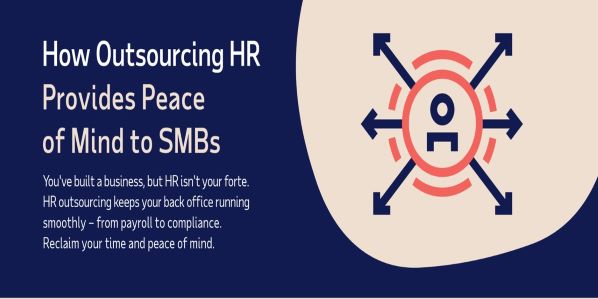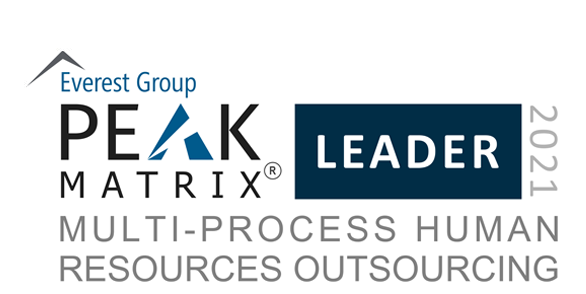BPO is a business relationship between two organizations, in which one performs certain functions, like human resources, on behalf of the other. It began in the manufacturing industry as a way to improve supply chain management, but has since expanded to other sectors because of the efficiency and potential cost savings that it affords. The services provided are commonly a combination of technology, expert guidance and administrative relief.
How does business process outsourcing (BPO) work?
Organizations that opt for BPO identify operations and business processes that are not a core competency of their product or service, but essential nonetheless, and sub-contract them out to a third-party. Depending on the provider, employers may be able to outsource tasks piecemeal or as part of a comprehensive package.
Examples of BPO
Take, for instance, a health care company that wants to improve human resources, but can’t afford to hire more personnel for that department. It may choose to work with a BPO provider that specializes in HR so it can focus on what it does best – taking care of patients – without having to worry about payroll, recruitment or benefits administration.
What functions are most frequently outsourced?
Employers commonly outsource operations that they don’t have the time or the resources to manage effectively on their own. These fall into one of two categories:
Back-office functions
- Human resources
- Accounting
- Research
- Information technology
Front-office functions
- Customer service
- Marketing
- Sales
- Tech support
What does a BPO company do for HR?
BPO providers use technology and best practice guidance from a team of specialists to help employers address operational deficiencies. HR processes that can be outsourced include, but are not limited to:
- Payroll and tax administration
- Benefits administration
- Recruitment
- Time and attendance
- Regulatory compliance
- Employee learning
What are the benefits of BPO for HR?
Whether due to a lack of budget, employees or time, every HR department has limits on how much it can achieve independently. With BPO, however, it’s possible to reach new heights. Employers may be able to:
- Reduce costs
Considering the expense of hiring more HR personnel and the time it takes to administer payroll and benefits, outsourcing can be a more cost-effective way to extend business capacity. - Improve efficiencies and productivity
BPO providers are experts in the services they provide, which means they’re often able to complete tasks faster and with greater accuracy than the client business. - Become more flexible
When freed from time-consuming administrative burdens, employers can quickly reallocate resources in response to market changes or unexpected disruptions. - Expand geographically
Outsourcing providers that have national and international compliance capabilities can help employers branch out into new geographic regions. - Stay competitive
Employers who outsource HR generally can pursue activities that further their business’s primary objective and increase revenue or growth.
Are there any risks or drawbacks to BPO?
Business ventures sometimes have risks and BPO is no different. Before outsourcing HR, employers should verify that any potential provider has the security measures necessary to prevent data breaches and is upfront about the scope of work and total cost of service.
How to choose a BPO provider for HR
Finding the right BPO provider requires extensive research into vendor capabilities, a careful review of business objectives and collaboration with key stakeholders. Here are some of the basic steps:
- Conduct a needs assessment
Identify which existing HR functions would benefit from outsourcing and which can be successfully managed in house. - Create a request for proposal (RFP)
List the various capabilities – regulatory compliance, industry knowledge, data analysis, etc. – expected of a potential provider. - Evaluate RFP responses
Weigh the pros and cons of each proposal and make sure that the provider clearly identifies which services fall under its domain and which remain with the client’s business. - Agree to terms
Secure stakeholder approval and negotiate a contract that documents the specific responsibilities, the duration of the partnership and the total cost, among other details. - Begin the transition process
Shift the agreed upon functions from internal HR teams to the BPO provider while ensuring open lines of communication between all parties.
Frequently asked questions
What are the different types of BPO?
BPO providers may refer to their services in one of the following ways:
- Administrative services offering (ASO)
Commonly used by small and mid-sized businesses, ASO varies greatly. It can be a technology platform with a help desk or a partial or full administrative service. - HR outsourcing
The vendor handles all or some administrative duties on behalf of an employer. This business model is sometimes confused with offshoring, which typically involves outsourcing certain functions to workers overseas. - Managed services
A provider takes care of most, if not all HR responsibilities. Managed services is most often used by companies with several hundred employees or more.
How is BPO different from a call center?
Call centers are a type of outsourcing that’s limited to customer support, whereas BPO encompasses many professional services, such as human resources, payroll, benefits administration and more.
How much does a BPO HR provider cost?
Fees vary, but providers typically charge based on the number of employees that a business has and which services it needs. Employers may want to get quotes for comparable offerings.
Why do businesses outsource?
Employers outsource because it affords them more time to focus on the core functions of their business while leaving certain administrative or professional services to a specialist. Other benefits of BPO include:
- Reduced costs
- Improved productivity
- Greater flexibility
- Enhanced market presence
This article offers practical information concerning the subject matter and is provided with the understanding that ADP is not rendering legal or tax advice or other professional services.



